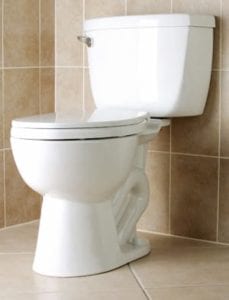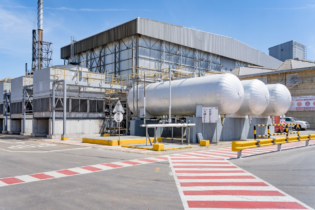
The Minister of Water and Sanitation, Nomvula Mokonyane plans on having 500 flushing toilets installed in Ficksburg, Free State before the end of this year
On 19 November, the world celebrates World Toilet Day – a day officially recognised by the United Nations to promote awareness and inspire the world to tackle the global sanitation crisis.
This year’s theme for World Toilet Day is “Toilets and Jobs”. This article aims to highlight the link between job creation and toilets with specific focus on South African and sub-Saharan initiatives led by the Water Research Commission (WRC).
The toilet. Defaecation, faeces and urine. It is not the most popular conversation to have. And certainly not the one you have around the dinner table – unless you work with poo – like I do. Yet, toilets and “going” to the toilet is important from a health and environmental perspective.
When open defecation occurs – going to the toilet in the open – there can be a spread of diseases such as cholera and diarrhoea. This link was established as early as the 1800s, when John Snow, a physician, linked the Broad Street cholera outbreak in London to contaminated water supply from a pump which was close to a leaking cesspit containing faeces.
A similar outbreak of cholera in KwaZulu-Natal in the early 2000s highlighted the importance of having clean drinking water, better hygiene practices and, yes, the availability of well-maintained toilets.
The main purpose of the toilet is to provide a barrier to disease and pollution. Despite the importance of sanitation, the developing world still struggles with providing sanitation in comparison to other basic services.
It is little wonder then that sanitation is called the ‘Cinderella’ of basic services – it’s more hidden and less well-known that drinking water supply – yet equally as important. In 2012, the WHO/UNICEF reported that there were 644 million people in sub-Saharan Africa that is 70% of the population, using an unimproved toilet facility or having to resort to open defecation.
For this reason, World Toilet Day is celebrated across the world – it’s not only to break the taboo about toilets and poop, but also to raise awareness of the challenges facing the developing world.
This year’s theme for World Toilet Day is “toilets and jobs”. You may ask yourself what jobs are there for toilets. There are caretaking services and plumbing, both of which are critical to maintaining community health through the maintenance and provision of clean facilities. There are other jobs linked to sanitation with businesses centred around providing sanitation services across the value chain, from providing new toilets to converting faecal waste into beneficiated products, like charcoal substitutes, which potentially hold a monetary value. This article will present some of the WRC’s contribution to this field.
Social franchising pilot project
In 2009, the WRC launched a project that saw the piloting of the concept of social franchising for water and sanitation delivery, specifically for schools in the Eastern Cape. With funding support from Irish Aid and in partnership with the Eastern Cape Department of Education, the franchise-like partnership model was demonstrated at 400 schools and 250 households in the Eastern Cape. Amanz’abantu Services, a provider based in East London with a well-established track record and appropriate expertise, set up a subsidiary, Impilo Yabantu Services, to be a franchisor, and microenterprises, established from the community in which they are based, were trained to be franchisees and were required to operate under the same band as the franchisor.
The pilot enabled the services rendered by the local franchisee to be of a specific standard, enabled franchisees to have easy access to highly-trained and experienced personnel as part of the franchise deal, and protected the franchisees from delays in cash flow and payments. Through the pilot, 400 schools were serviced and more than 20 sustainable jobs and 50 part-time informal employment opportunities have been created. This pilot clearly showed the relationship between job creation and service delivery through an innovative public-private partnership.
Innovative off-grid sanitation technology
In 2010, the WRC funded the development of an innovative off-grid sanitation technology called the ‘pour flush’ toilet. The toilet filled a technological gap for low-water-usage, flushing toilets where there is no sewerage infrastructure available. The promising R&D outputs saw the technology moved from pilot stage to demonstration stage across the country through a partnership with the Department of Science and Technology.
EnviroSan, a local plastic toilet manufacturer, saw potential in the R&D product and invested in developing a commercialised product called the EaziFlush. This product could be upgraded to include a low-flushing cistern. Through the demonstration programme, over 1 000 units have been installed with 290 temporary local jobs created through the installation of the toilets. While jobs may not have been permanent, it did facilitate the training of local people with basic construction techniques.
Water for People programme
In Kampala, Uganda, Water for People was commissioned in 2013 by the WRC through a partnership with the Bill and Melinda Gates Foundation to lead the project: ‘Sanitation as a Business: the Kampala SaniHub Project’.
The purpose of the project was to provide services to people by incorporating innovative products across the sanitation value chain that make sanitation servicing businesses more viable. Similar to the South African product, the team developed a pour flush system for the Ugandan market called the DuraSan.
The latrine superstructure was made from pre-fabricated interlocking lego-like concrete blocks to reduce the construction time and the level of skill needed for construction. It further allowed the latrine superstructure to be easily disassembled in order to relocate the latrine. Ten Dura San latrines were installed in Mukono district, an 8-day operation. On day one, all the components for 10 latrines were loaded onto two pick-up vans and delivered to each of the 10 households. All 10 latrines were then successfully assembled over the following seven days.
The total cost for installation for one latrine was around US$343, including labour costs. Customer feedback and performance surveys were carried out for the technology. Over 90% of respondents indicated that the Dura-San was better than their current facility with over 80% indicating that the system was affordable at the market price of close to US$600. The result indicated that users were willing to pay for a more innovative and better toilet product than a simple latrine.
Water For People Uganda has also been promoting pit-emptying businesses using low-cost locally fabricated equipment. This business has attracted entrepreneurs. However the challenge in making the business profitable is the long transportation distances to recognised faecal sludge disposal points.
The research team investigated not only more efficient sludge-emptying devices (to increase loads per day and generate more income) but also the possibility of introducing Decentralised Faecal Sludge Treatment units that could be installed in close proximity to emptying services. The beneficiation of dewatered faecal sludge using carbonisation techniques, vermicomposting and black soldier fly digestion has been explored by the research team. These products have potential monetary value and could stimulate the establishment of an industry based on collecting faecal waste and converting it into beneficiated products.
To conclude, as there are so many people in the world requiring sanitation services, there will always be an opportunity for job creation linked to sanitation services.
* Dr Sudhir Pillay is the research manager responsible for sanitation at the Water Research Commission.









